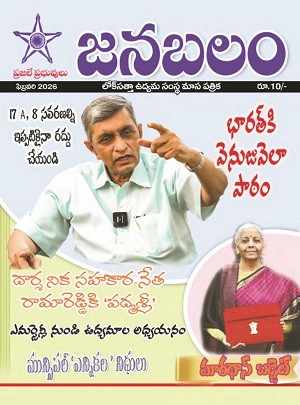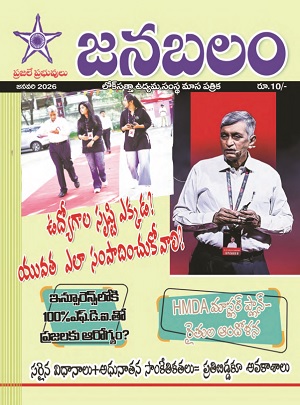“I heard there is a vacancy for the post of MLA of Malleswaram. I am applying for the job.”
This is how Dr Meenakshi Bharath introduces herself to her voters in this part of north-west Bangalore. A gynaecologist, Bharath is contesting her first assembly election as a Loksatta party candidate and her supporters distribute her resume to voters so that they know her better.
Dr Bharath is not the only professional making her entry into the world of politics. In the Bommanahalli constituency, a Bangalore suburb, Ashwin Mahesh is making a similar pitch to voters. This astronomer-cum-journalist who along with Bharath, has been very active in the anti-corruption Saaku movement and the India Against Corruption Jan Lokpal Bill movement in Bangalore, is also contesting on a Loksatta party ticket in this election.
Bharath and Mahesh are typical members of the Indian middle class, who have decided to get their hands dirty in the cesspool of Karnataka politics. The Loksatta Party, founded in 2006 by IAS officer-turned-politician Dr Jayaprakash Narayan in Andhra Pradesh, has fielded 15 candidates in Karnataka, all of them accomplished professionals. Nine of them are contesting from constituencies in Bangalore. A lecturer, a software engineer, a couple of farmers, entrepreneurs, teachers are some of the fields from which Loksatta party has drawn candidates to present to Karnataka voters.
“We think 2-3 of us stand a good chance. If we win that many, we will be over the moon,” said Bharath.
“It became necessary for us to do this because the government we elected in 2008 did not deliver. So we needed to come in to bring in accountability and transparency. Bangalore’s sheen has reduced. It is time Bangaloreans elected people who do not have vested interests,” she said.
The big positive that the entry of these non-political faces has brought about is that the debate in this election is around developmental issues and not mere votebank politics. They speak about local issues and quality of life. They ask why encroachments are the norm in Bangalore, where the footpaths have disappeared, the need to set up solid waste management systems and similar issues.
“For nearly 70 years since Independence, we have been fed a story of development that never seems to arrive but is always in the distant future,” writes Mahesh in his message to his voters.
“I believe it is because thus far we have only been consumers of this politics. We need to change that and become producers of the democracy we want for ourselves so that it is not only a form of government for the people and of the people but also by the people.”
At Bharath’s campaign headquarters, a poster says `If you have been waiting for change, I stand right here, in front of you’. The transparent manner in which the campaign is being conducted itself is quite a change. All funds are accounted for, even a twenty rupee note an autorickshaw driver gave to the election fund. The campaigning process does not involve in any noise pollution and loudspeakers are a no-no. They do not contribute to the carbon footprint, undertaking only bicycle or horse carriage rallies.
Victoria, an event manager, has shut her professional activity completely for the last one month to do her bit to help Bharath win.
“We have been going to meet people for almost a year now. People were surprised that we were enquiring about their problems even when elections were so far away,” said Victoria.
But despite introducing a whiff of fresh air to the electoral process in Karnataka, and Bangalore in particular, not many expect the professionals to triumph on debut. Even though Bangalore has seen considerable angst over the manner in which civic, infrastructure and environmental woes were not sufficiently addressed by the BJP government, these professionals may not find that it translates into votes in their favour, primarily due to their lack of a political approach to problems and because many believe they appeal only to the elites. While they see themselves as solution providers, elections in India are also about building a base and the gestation period is invariably long.
The challenge also is in convincing voters to try out a new candidate, which is almost akin to pushing a new product in the market. At Vyalikaval, a predominantly Tamilian locality in Malleswaram, a not-to-be-missed sight is a huge cutout of superstar Rajinikanth. A local resident, Victor, points to the cutout and says with a degree of pride, “I also work in the RTC as a conductor in Bangalore, like he did many years ago.”
When I ask him who he will vote for, Victor draws on Rajnikanth to explain his decision.
“Even the Superstar took some time before the masses accepted him. Similarly, these newcomers into politics also should be patient. If they are good, we will vote for them. Everyone likes to vote for the winner. We would not like our vote to go waste, you see,” he said.
The consensus on the street is that it is certainly a good beginning. Mainstream parties like the Congress feel that if the new candidates poll a significant number of votes, established political parties will realise the merit in fielding professionals and clean candidates and might do so the next time round.
Five years ago, Karnataka was seen as the BJP’s gateway into south India. In 2013, well-meaning professionals are hoping to use Karnataka as a gateway to a democracy.
Courtesy: Firstpost
Saturday, April 13, 2013
How Bangalore’s professionals are fighting netas for their city
Labels:
english
Subscribe to:
Post Comments (Atom)





Nice to see good candidates contesting from Bangalore. I am very hopeful that soon politics in India will change for betterment of people.
ReplyDeleteHave faith. Indian politics will/should change. The movement is already ON! (whether it's LokSatta or Arvind, or Anna, all are having the same goal). Loksatta has already created a success in Bangalore by putting good/competent candidates. This will put pressure on BJB/Congress to "think about things" and find good candidates.
ReplyDelete